Validación de la versión en español de las escalas de Oxford para rodilla y cadera
DOI:
https://doi.org/10.1016/j.rccot.2016.07.004Palabras clave:
escala de Oxford, gonartrosis, coxartrosisResumen
Introducción: Las escalas para rodilla y cadera de Oxford son herramientas desarrolladas en inglés con el fin de evaluar la calidad de vida en pacientes con gonartrosis y coxartrosis. El propósito de este estudio fue realizar una adaptación cultural de estas escalas en español para evaluar su reproducibilidad y validez, lo que permita su implementación en Latinoamérica.
Materiales y métodos: Basándose en las normas de las guías de investigación médica, se tradujeron las escalas de rodilla y cadera de Oxford al español. Se pidió a 80 pacientes con gonartrosis (40 pacientes) y coxartrosis (40 pacientes) que realizaran la escala. Para evaluar la fiabilidad se realizó la medición a los mismos pacientes por segunda vez en un período no superior a 15 días. Se calculó el alfa de Cronbach (AC) y el coeficiente de correlación intraclase (CCI) para calcular la coherencia interna y la fiabilidad test-retest.
Resultados: El alfa de Cronbach para rodilla fue 0,82 y para cadera 0,96. Se encontró una excelente fiabilidad a través de un CCI de 0,98 y 0,99, para rodilla y cadera respectivamente. El método de Bland-Altman no mostró errores sistemáticos y el índice de cambio fiable fue el 3,5% para rodilla y el 3,1% para cadera.
Discusión: Se demostró que las versiones en español de las escalas de Oxford para rodilla y cadera son herramientas válidas y fiables para evaluar la calidad de vida en pacientes con artrosis y pueden ser usadas en países de habla hispana.
Nivel de evidencia clínica: Nivel I.
Descargas
Referencias bibliográficas
Feeley BT, Gallo RA, Sherman S, Williams RJ. Management of osteoarthritis of the knee in the active patient. J Am Acad Orthop Surg. 2010;18:406-16. https://doi.org/10.5435/00124635-201007000-00003
Murray DW, Fitzpatrick R, Rogers K, Pandit H, Beard DJ, Carr AJ, et al. The use of the Oxford hip and knee scores. J Bone Joint Surg Br. 2007;89:1010-4. https://doi.org/10.1302/0301-620X.89B8.19424
Gonc¸alves RS, Tomâs AM, Martins DI. Cross-cultural adaptation and validation of the Portuguese version of the Oxford Knee Score (OKS). Knee. 2012;19:344-7. https://doi.org/10.1016/j.knee.2011.04.006
Naal FD, Impellizzeri FM, Sieverding M, Loibl M, von Knoch F, Mannion AF, et al. The 12-item Oxford Knee Score: cross-cultural adaptation into German and assessment of its psychometric properties in patients with osteoarthritis of the knee. Osteoarthr Cartil. 2009;17:49-52. https://doi.org/10.1016/j.joca.2008.05.017
Xie F, Li SC, Lo NN, Yeo SJ, Yang KY, Yeo W, et al. Cross-cultural adaptation and validation of Singapore English and Chinese Versions of the Oxford Knee Score (OKS) in knee osteoarthritis patients undergoing total knee replacement. Osteoarthr Cartil. 2007;15:1019-24. https://doi.org/10.1016/j.joca.2007.02.013
Jenny JY, Diesinger Y. Validation of a French version of the Oxford knee questionnaire. Orthop. Traumatol Surg Res. 2011;97:267-71. https://doi.org/10.1016/j.otsr.2010.07.009
Dawson J, Fitzpatrick R, Murray D, Carr A. Questionnaire on the perceptions of patients about total knee replacement. J Bone Jt. Surg Br. [internet]. 1998;80:63-9. Disponible en: http://www.ncbi.nlm.nih.gov/pubmed/9460955. https://doi.org/10.1302/0301-620X.80B1.0800063
Dawson J, Fitzpatrick R, Carr A, Murray D. Questionnaire on the perceptions of patients about total hip replacement. J Bone Joint Surg Br. 1996;78:185-90. https://doi.org/10.1302/0301-620X.78B2.0780185
Paulsen A, Odgaard A, Overgaard S. Translation, cross-cultural adaptation and validation of the Danish version of the Oxford hip score: Assessed against generic and disease-specific questionnaires. Bone Joint Res. [internet]. 2012;1:225-33. Disponible en: http://www.pubmedcentral.nih.gov/articlerender.fcgi?artid=3626210&tool=pmcentrez&rendertype=abstract. https://doi.org/10.1302/2046-3758.19.2000076
Naal FD, Sieverding M, Impellizzeri FM, Von Knoch F, Mannion AF, Leunig M. Reliability and validity of the cross-culturally adapted German oxford hip score. Clin Orthop Relat Res. 2009;467:952-7. https://doi.org/10.1007/s11999-008-0457-3
Martinelli N, Longo UG, Marinozzi A, Franceschetti E, Costa V, Denaro V. Cross-cultural adaptation and validation with reliability, validity, and responsiveness of the Italian version of the Oxford Hip Score in patients with hip osteoarthritis. Qual Life Res. 2011;20:923-9. https://doi.org/10.1007/s11136-010-9811-5
Gosens T, Hoefnagels NHM, de Vet RCW, Dhert WJA, van Langelaan EJ, Bulstra SK, et al. The Oxford Heup Score: the translation and validation of a questionnaire into Dutch to evaluate the results of total hip arthroplasty. Acta Orthop. 2005;76: 204-11. https://doi.org/10.1080/00016470510030580
Guillemin F, Bombardier C, Beaton D. Cross-cultural adaptation of health-related quality of life measures: Literature review and proposed guidelines. J Clin Epidemiol. 1993;46:1417-32. https://doi.org/10.1016/0895-4356(93)90142-N
Wild D, Grove A, Martin M, Eremenco S, McElroy S, VerjeeLorenz A, et al. Principles of good practice for the translation and cultural adaptation process for patient-reported outcomes (PRO) measures: Report of the ISPOR Task Force for Translation and Cultural Adaptation. Value Heal. 2005;8:94-104. https://doi.org/10.1111/j.1524-4733.2005.04054.x
Dowsey MM, Choong PFM. The utility of outcome measures in total knee replacement surgery. Int J Rheumatol. 2013;2013:506518, https://doi.org/10.1155/2013/506518
Descargas
Publicado
Cómo citar
Número
Sección
Licencia
Derechos de autor 2024 Revista Colombiana de ortopedia y traumatología

Esta obra está bajo una licencia Creative Commons Reconocimiento 3.0 Unported.








